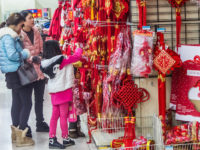
Trends in the Southeast Asian FMCG market are no longer influenced by the coronavirus news cycle, according to a new Nielsen study.
The report finds that new socioeconomic and behavioural patterns that have sprung up in the wake of the virus – in a region where 38 per cent of consumers report having been impacted by the Covid-19 virus – are holding sway over the industry in ways that are likely to continue in future.
The Nielsen report anticipates that consumers will start to reprioritise what goes into their baskets, reflecting a fundamental consumption reset and a decline in non-essential purchases. Stockpiling behaviour, however, has not been shown to be as persistent as was earlier feared.
“As consumer response deviates from the news cycle, the building blocks of the everyday shopping basket have bent in the face of economic downturn and transformation of the workforce,” said Nielsen Intelligence Unit head Scott McKenzie. “… decisions will need to be made to reconcile purchase habits people have had in place for years alongside today’s new reality where health and value priorities compete side by side”.
“Do-it-yourself” behaviours and in-home branded experiences are persisting in the Aisan marketplace, suggesting a trend that skews towards FMCG suitable to homebound lifestyles. At the same time, as analyses of US consumers suggest, consumers of key leisure and lifestyle activities may trade up their FMCG product repertoires to compensate for dining and vacation experiences they can no longer safely access.
“Companies that can intelligently align with DIY behaviours will succeed in empathising with current consumer interest in creative, cost-conscious and safe consumption,” said Mckenzie.
“Consumers are already willing to do the legwork to bring a product experience into the safety of their homes. Therefore, companies have the opportunity to seize that interest and respond with affordable, accessible and branded take-home experiences.”
Asian consumers now have less disposable income following Covid-19, and will be seeking to optimise their basket spend to prioritise health and value needs.
“Consumers throughout the region are constrained to spend as every purchase holds greater significance,” said Nielsen’s MD for consumer intelligence in Asia Vaughan Ryan, “while those consumers who remain insulated too will justify premium spending based on benefits and convenience”.















